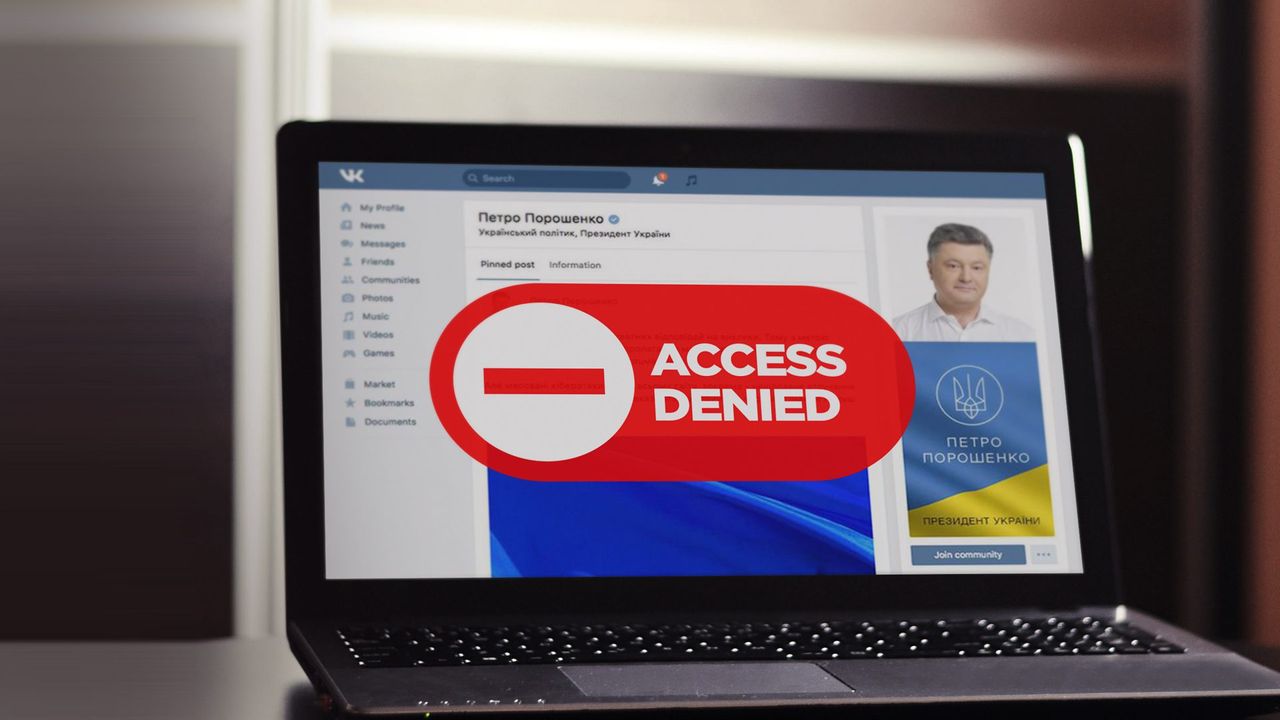
Ukrainian President Petro Poroshenko has signed decree imposing sanctions on more Russian companies. The updated “black list” now includes 468 Russian companies and their Ukrainian subsidiaries. What has aroused the most controversy, however, is the blockade of social networks VKontakte and Odnoklassniki, email provider Mail.ru, websites belonging to the Yandex group, as well as software developer 1C.
On 16 May, the Ukrainian president signed a decree enforcing the decision of the National Security and Defense Council of Ukraine (NSDC) to impose sanctions on more Russian-invested companies. Besides manufacturing companies and airlines (e.g. Aeroflot), the list also includes Russian internet companies.
According to NSDC Secretary Oleksandr Turchynov, Russian websites operating in Ukraine illegally collected information about their users and were used to spread propaganda and orchestrate cyberattacks.
At the same time, Turchynov assured that the decision is not about limiting freedom of speech in Ukraine. “We are simply defending our homeland”, he explains.
However, many journalists, experts and ordinary Internet users have serious doubts.
Internet users are divided into two groups. Patriots believe that in the current state of war, Internet resources originating from the hostile country that is Russia should have been banned long ago. On the other hand, there are opponents of limiting the rights to access the Internet. The concerns of the latter are supported by Freedom House, who believe that blocking Russian websites may limit Ukrainians’ access to information and free expression of opinions.
Ex-journalist and current MP Serhiy Leshchenko believes that the government intends to increase its control of the Internet and its users before the 2019 presidential elections.
According to political scientist Yuri Romanenko, the government does not realise the consequences of its decision to block Russian social networks and software.
“There is no bottom they [author’s note: the government] can’t hit” – commented Romanenko on Facebook.
A Western reader who uses primarily Facebook and Twitter may ask what all the controversy is about. The issue is that each month, several dozen million users in Ukraine use the Russian websites which have now been subjected to sanctions.
Social network VKontakte is the second most popular site in Ukraine after Google. Each month, VKontakte was visited by 15.8 million users, and Odnoklassniki – by 9.5 million. In comparison, according to data from late 2006, Facebook in Ukraine only had 7.2 million users per month.
The sanctions against Russian Internet companies also have an economic dimension. Most Ukrainian companies use software developed by Russian company 1C (e.g. accounting software). It is unknown what the sanctions will mean in practice for users of Russian software. It is also not yet known when access to the sites listed will be blocked in Ukraine. As of last evening, all of the websites were accessible through Kiev networks. According to the decree, the blockade should take effect by 1 June.
Ukrtelecom, the main telecommunications service provider in Ukraine, has stated that it began implementing the sanctions on Wednesday. The Security Service of Ukraine will send letters regarding the blockade of Russian sites to all providers.
The Ukrainian Internet Association, in turn, has stated that blocking Russian sites by Ukrainian providers is currently impossible for technical reasons. They believe that both time and significant financial resources are needed in order to replace equipment and technology used to access the Internet.
Meanwhile, many Internet users point out that the blockade will only increase interest in software that allows users to access the banned websites.























